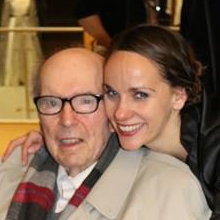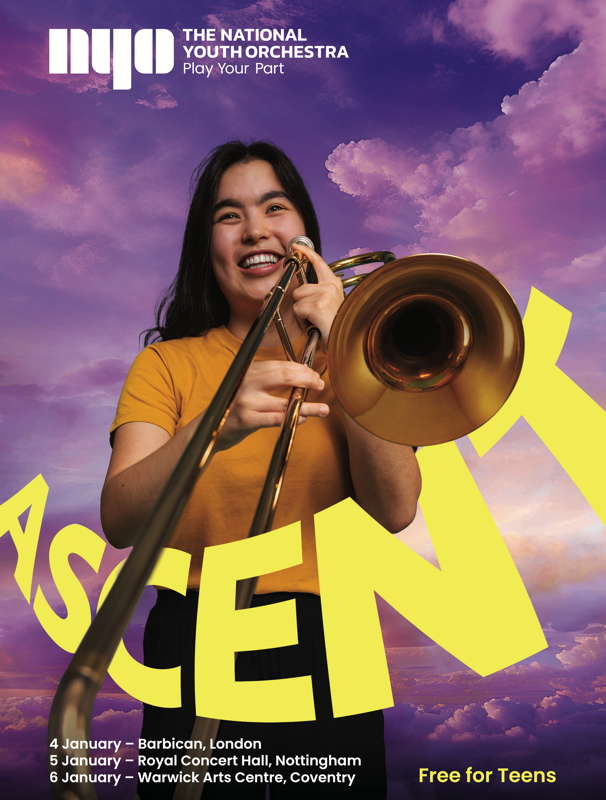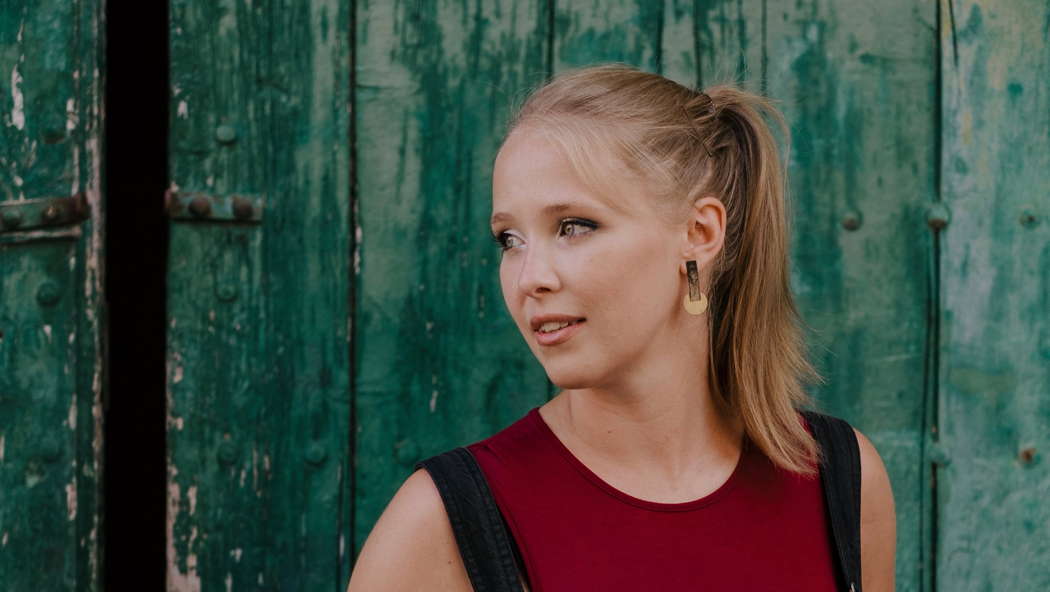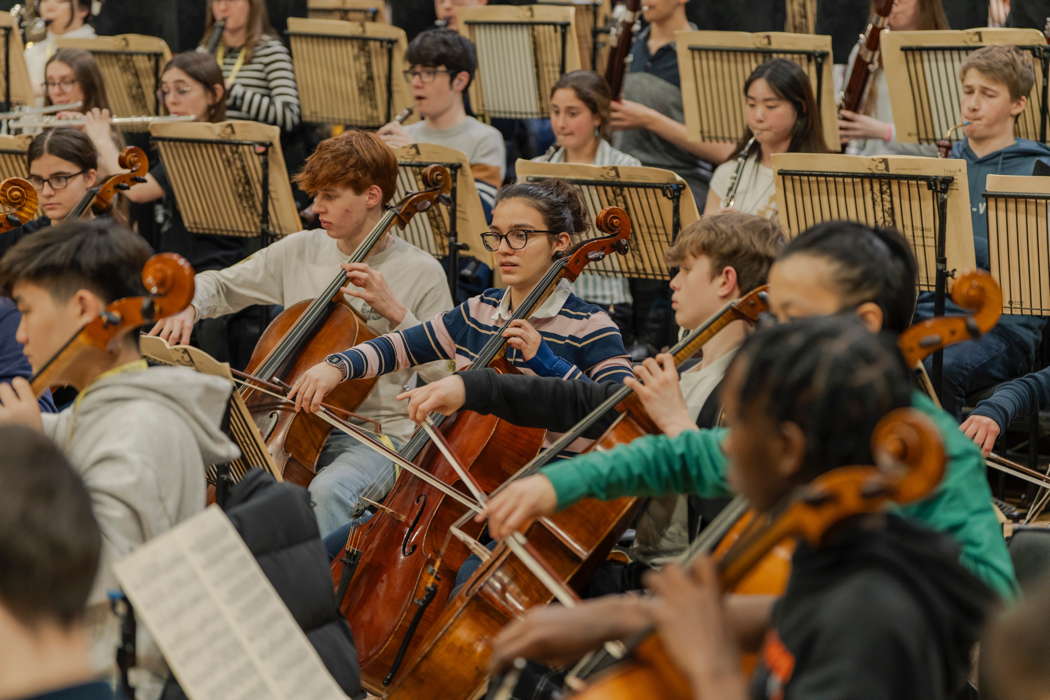- Anand Modak
- Gabriele Ferro
- Clara Wieck
- Worcestershire
- Adrian Vernon Fish
- fantasy in classical music
- Business Insider
- Benjamin Hely
 DISCUSSION: John Dante Prevedini leads a discussion about Composers, individuals or collective?, including contributions from David Arditti, Halida Dinova, Robert McCarney and Jane Stanley.
DISCUSSION: John Dante Prevedini leads a discussion about Composers, individuals or collective?, including contributions from David Arditti, Halida Dinova, Robert McCarney and Jane Stanley.
 SPONSORED: Ensemble. A view from the pit - John Joubert's Jane Eyre, praised by Alice McVeigh.
SPONSORED: Ensemble. A view from the pit - John Joubert's Jane Eyre, praised by Alice McVeigh.
All sponsored features >>
Refreshing and Exhilarating
MIKE WHEELER starts the year with music by Dani Howard, Smetana and Richard Strauss from the National Youth Orchestra of Great Britain
There can be few more refreshing and exhilarating ways to start a new year than with a National Youth Orchestra concert, apart from actually being one of the players. The heightened buzz was evident from the moment you walked into the building - Royal Concert Hall, Nottingham, UK, 5 January 2024. The orchestra's winter residency tour also took in the Barbican, London, and Warwick Arts Centre.

Publicity for the National Youth Orchestra of Great Britain's 'Ascent' programme
The concert's title, 'Ascent' reflected this positive energy, as well as referring to the programme's main work, Richard Strauss's Alpine Symphony. It is also the title of the piece Dani Howard wrote to open the programme. Unconducted, scored for just brass and percussion, and described by Howard as 'a theatrical piece as much as anything else', it was a ringing endorsement of the orchestra's collective musicianship. Part extended fanfare, part meditation, it emerged from the trumpets, trombones and percussion tuning, at the back of the stage. The horns then processed on from both sides while playing, and lined up at the front. Their physical movements included turning to face upstage at a couple of points, giving us their sound at full-throttle. At the end, they processed off again, leaving a final vibraphone note hanging tantalisingly in the air.

Dani Howard
Sir Mark Elder conducted the rest of the programme, beginning with an unhurried, but by no means sedate reading of Vltava, from Smetana's Má Vlast. The opening section, depicting the two streams that feed into the river, had an eagerness enlivened by pizzicato flicks, against the swirling woodwind. The polka had an earthy robustness, and the moonlight episode brought a glassy sheen to the strings, while the woodwind bubbled away. The St John's Rapids passage was as turbulent as I've heard, and as the ruins of Vyšehrad castle came into view, its themes, from the first tone-poem in the sequence, rang out majestically.
There was no interval, so we were soon facing Strauss' very different landscape. Mark Elder talked us through the work in his usual affable way, suggesting, among other things, that the work's conclusion showed Strauss at his most pantheistic. The various section headings were projected on a screen above the orchestra to help keep track of our day in the mountains. Following the opening, 'Night', with smooth descending strings and brass like a chorale, and an eruptive sunrise, 'Ascent' set off with energy and purpose. The brass contribution was punchy, distant horns adding a spacious dimension to the sound. As we entered the forest, perky woodwind birdsong enlivened the strings' rich sonority; the spray from the waterfall was almost tangible, and the cowbells sounded mellow and lazy as we crossed the pasture.
In 'Dangerous moment', the solo bassoon added to a sense of wariness, almost trepidation, but once on the summit, the solo oboe theme sounded spacious and calmly awed, the mood continuing into 'Vision'. (Vision of what? Strauss doesn't say.)
The muted strings of 'Elegy' drew a veil over the scene, but the solo cor anglais brought a sense of expectancy, before the storm. When it broke, with Strauss's onomatopoeic imagination runing riot, Elder and the NYO players didn't hesitate to dive in after him.
As sunset came on, the players leaned into Strauss's spacious phrases, creating a warm glow, before 'Night' took us full circle, with poised string lines, in particular, conjuring a sense of deep tranquility.

Members of the National Youth Orchestra of Great Britain
At the end, as the players and audience left, a quartet of horns played us out, with the buzz in the hall just as lively as when we arrived.
Copyright © 13 January 2024
Mike Wheeler,
Derby UK



